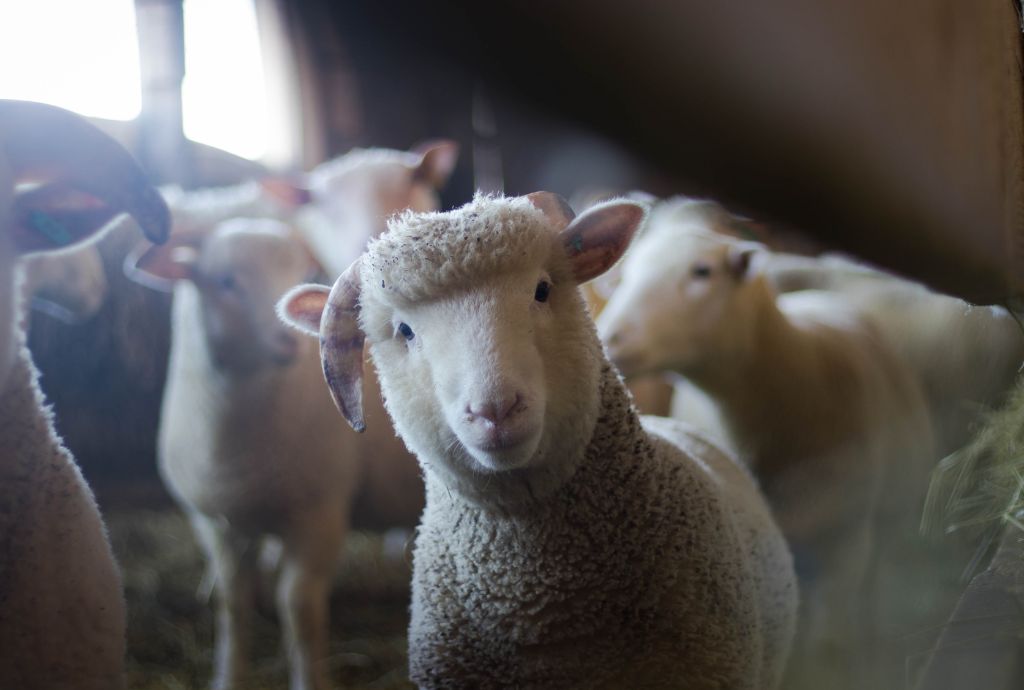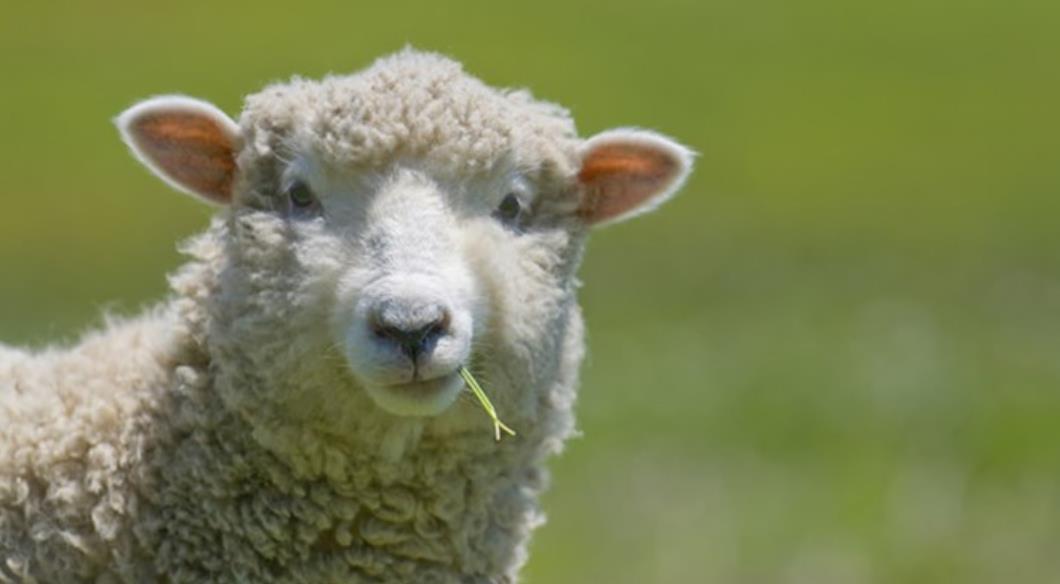
Starting a sheep farm can be an incredibly rewarding endeavor, providing not only a source of income but also a fulfilling lifestyle. To embark on this journey, it’s crucial to understand the essentials of how to start a sheep farm. From selecting the right breed to managing grazing and health care, each step plays a vital role in the success of your farm.
Understanding how to start a sheep farm begins with thorough planning and preparation. You’ll need to consider factors such as the land, the climate, and the resources available to you. This guide will walk you through the initial steps and provide valuable insights to ensure your sheep farming venture thrives.
Table of Contents
Choosing the Right Breed
Assessing Your Goals
The first step in choosing the right breed is to clearly define your goals. Are you interested in producing wool, meat, or milk? Each breed has its own strengths, and understanding your primary objective will help narrow down your options.
Researching Breeds
Take the time to research different breeds and their characteristics. Some popular breeds include Merino, known for its high-quality wool, and Dorper, which is prized for its meat. Consider factors such as climate adaptability, disease resistance, and ease of management.
Setting Up the Farm
Land Preparation
Preparing the land is a crucial aspect of starting a sheep farm. Ensure that the pastures are well-maintained and free of hazardous plants. Good fencing is essential to protect your sheep from predators and to manage grazing effectively.
Infrastructure and Equipment
Investing in the right infrastructure and equipment will make farm management more efficient. Essential facilities include shelter, feeding stations, and water sources. Additionally, equipment such as shearing tools and medical supplies are necessary for maintaining the health and productivity of your flock.
Grazing Management
Rotational Grazing
Implementing a rotational grazing system can significantly improve pasture health and sheep productivity. By rotating your sheep between different pastures, you can prevent overgrazing and promote regrowth.
Supplementary Feeding
Depending on the season and pasture quality, supplementary feeding might be necessary. This can include hay, silage, or grain to ensure your sheep receive adequate nutrition year-round.
Health and Welfare
Regular Health Checks
Regular health checks are vital to detect and address any issues promptly. Establish a schedule for vaccinations, deworming, and general health assessments to keep your flock in optimal condition.
Biosecurity Measures
Implementing biosecurity measures helps prevent the spread of diseases within your flock. Limit the introduction of new animals without proper quarantine and maintain clean and sanitary living conditions.
Marketing and Selling
Identifying Your Market
Understanding your target market is crucial for the success of your sheep farming business. Whether you plan to sell wool, meat, or live animals, identify potential buyers and tailor your production to meet market demands.
Building a Brand
Building a strong brand can set your sheep farm apart from others. Focus on quality, consistency, and transparency to build trust with your customers and establish a loyal customer base.
By carefully considering these aspects and following a well-structured plan, you can successfully start and manage a thriving sheep farm.
Breeding and Reproduction
Understanding Breeding Cycles
To maximize productivity, it’s important to understand the breeding cycles of sheep. Most breeds are seasonal breeders, meaning they have specific times of the year when they are more fertile. Familiarize yourself with these cycles to plan your breeding program effectively.
Selecting Breeding Stock
Choosing the right breeding stock is crucial for the long-term success of your sheep farm. Look for animals with strong genetics, good health, and desirable traits. Keep detailed records of your breeding program to monitor progress and make informed decisions.
Lambing Management
Lambing is a critical period that requires careful management to ensure the health of both ewes and lambs. Prepare a clean and safe lambing area, and be ready to assist with difficult births if necessary. Post-lambing care is also essential to support the growth and development of the lambs.
Financial Planning and Management

Budgeting and Initial Investment
Starting a sheep farm involves a significant initial investment. Create a detailed budget that includes the cost of land, infrastructure, livestock, feed, and equipment. Consider potential financing options and grants available for new farmers.
Ongoing Costs and Revenue Streams
Understand the ongoing costs associated with sheep farming, such as feed, veterinary care, and labor. Identify multiple revenue streams to diversify your income, including selling wool, meat, breeding stock, and value-added products like sheep milk cheese.
Record Keeping
Maintaining accurate records is vital for managing your sheep farm efficiently. Track expenses, income, breeding records, health treatments, and production data. Good record-keeping practices will help you make informed decisions and improve farm performance.
Environmental and Sustainable Practices
Sustainable Grazing Practices
Adopting sustainable grazing practices helps maintain pasture health and supports the environment. Implement rotational grazing, avoid overgrazing, and promote biodiversity by allowing native plants to thrive.
Waste Management
Proper waste management is essential to prevent environmental contamination. Composting manure and using it as fertilizer can enhance soil health and reduce the need for chemical inputs.
Water Conservation
Efficient water use is critical, especially in regions prone to drought. Install water-efficient systems, such as drip irrigation and rainwater harvesting, to ensure a reliable water supply for your sheep and pastures.
Legal Considerations
Understanding Regulations
Familiarize yourself with local regulations and requirements related to sheep farming. This includes zoning laws, animal welfare standards, and environmental regulations. Compliance is crucial to avoid legal issues and ensure the long-term sustainability of your farm.
Animal Identification and Traceability
Implementing a system for animal identification and traceability is important for managing your flock and meeting legal requirements. Use ear tags, microchips, or other methods to keep track of individual animals and their health records.
Education and Continuous Learning
Joining Farming Communities
Connecting with other sheep farmers can provide valuable support and knowledge sharing. Join local farming communities, attend agricultural fairs, and participate in online forums to stay updated on best practices and industry trends.
Attending Workshops and Training
Continual education is essential for staying informed about the latest advancements in sheep farming. Attend workshops, training sessions, and webinars to enhance your skills and knowledge in areas such as animal husbandry, pasture management, and marketing.
Technology and Innovation
Utilizing Farm Management Software
Farm management software can streamline operations and improve efficiency. These tools help with record-keeping, financial management, and monitoring flock health. Explore different software options to find one that fits your needs.
Embracing New Technologies
Stay open to adopting new technologies that can enhance your sheep farming operation. Innovations such as automated feeding systems, health monitoring devices, and genetic testing can improve productivity and animal welfare.
By following these guidelines and continuously improving your practices, you can build a successful and sustainable sheep farming business. Each step, from planning and setup to ongoing management and innovation, plays a crucial role in achieving your farming goals.
Risk Management
Identifying Potential Risks
Every farming venture comes with its own set of risks. Identify potential risks that could affect your sheep farm, such as extreme weather conditions, disease outbreaks, and market fluctuations. Understanding these risks allows you to develop strategies to mitigate their impact.
Developing a Risk Management Plan
A comprehensive risk management plan is essential for protecting your farm from unexpected events. This plan should include emergency procedures for disease outbreaks, strategies for dealing with adverse weather, and financial safeguards such as insurance.
Insurance Coverage
Investing in adequate insurance coverage is crucial for managing risk. Explore different types of insurance policies that cover livestock, property, and liability. Insurance can provide financial support in the event of losses due to unforeseen circumstances.
Marketing and Selling Strategies
Direct Sales and Farmers Markets
Selling directly to consumers through farmers markets and on-farm sales can help you build relationships with customers and receive better prices for your products. Create a strong presence at local markets and offer high-quality, locally produced goods.
Online Sales and E-commerce
Incorporating online sales into your business model can expand your reach and customer base. Develop a user-friendly website and utilize social media platforms to market your products. Consider offering online ordering and delivery services to meet the needs of modern consumers.
Collaborating with Local Businesses
Collaborating with local restaurants, grocery stores, and craft producers can create additional sales channels for your products. Building partnerships with businesses that value locally sourced, high-quality ingredients can enhance your farm’s reputation and increase sales.
Customer Engagement and Education
Farm Tours and Events
Hosting farm tours and events is an excellent way to engage with customers and educate them about sheep farming. Offer guided tours, workshops, and seasonal events to provide a hands-on experience and foster a deeper connection with your farm.
Educational Content and Workshops
Providing educational content, such as blog posts, videos, and workshops, can position you as an expert in sheep farming. Share valuable information about sheep care, wool processing, and sustainable farming practices to attract and retain customers.
Building a Community
Creating a community around your farm can enhance customer loyalty and support. Engage with your audience through social media, newsletters, and community events. Encourage feedback and interaction to build a strong, supportive network.
Expanding and Diversifying
Adding Value-Added Products
Diversifying your product line with value-added products can increase your farm’s profitability. Consider producing items such as wool yarn, sheepskin products, and artisanal cheeses. Adding value to your raw products can attract new customers and command higher prices.
Exploring Agritourism
Agritourism offers an additional revenue stream by attracting visitors to your farm. Develop activities such as farm stays, petting zoos, and educational workshops to draw tourists and generate income. Ensure you have the necessary permits and insurance to operate safely and legally.
Scaling Your Operations
As your farm grows, consider scaling your operations to increase production and efficiency. This might involve expanding your flock, investing in additional land, or hiring more staff. Plan for sustainable growth to avoid overextending your resources.
Community and Environmental Stewardship
Supporting Local Communities
Actively support your local community by sourcing supplies from local businesses, participating in community events, and providing educational opportunities. Building strong community ties can enhance your farm’s reputation and create a supportive network.
Environmental Stewardship
Commit to environmentally sustainable practices to protect natural resources and promote biodiversity. Implement conservation techniques such as reforestation, water conservation, and sustainable grazing practices. Aim to minimize your farm’s environmental impact and contribute positively to the ecosystem.
By focusing on these comprehensive strategies, you can create a thriving and sustainable sheep farming business. Each aspect, from risk management to customer engagement, plays a vital role in building a resilient and profitable farm. Stay informed, adapt to changes, and continuously strive for improvement to ensure long-term success in sheep farming.
Animal Welfare and Ethics
Ethical Farming Practices
Ensuring high standards of animal welfare is fundamental to ethical farming practices. Provide your sheep with a healthy, stress-free environment, ample space to graze, and proper nutrition. Ethical practices not only improve animal health but also enhance the quality of your products.
Humane Handling Techniques
Implement humane handling techniques to minimize stress and injury to your sheep. Train your staff in gentle handling methods and use low-stress facilities designed for sheep movement. Avoid overcrowding and ensure that all handling equipment is safe and well-maintained.
Monitoring and Improvement
Regularly monitor your animal welfare standards and seek continuous improvement. Conduct welfare audits, seek feedback from veterinarians, and stay informed about the latest advancements in animal welfare science. Prioritize the well-being of your flock in all farming decisions.
Seasonal Management
Spring Management
Spring is a critical time for lambing and pasture growth. Prepare your pastures early, ensure lambing areas are clean and safe, and provide adequate nutrition to ewes during this demanding period. Monitor lamb health closely and address any issues promptly.
Summer Management
In summer, focus on managing heat stress and maintaining pasture quality. Provide shade and fresh water to your sheep, and consider supplementary feeding if pastures are dry. Monitor for parasites and implement control measures to keep your flock healthy.
Fall Management
Fall is an ideal time to prepare for winter and plan for breeding. Ensure your sheep have access to high-quality forage, and check the condition of shelters and fencing. Begin breeding programs and prepare for the increased nutritional needs of pregnant ewes.
Winter Management
Winter management involves providing shelter and sufficient feed to maintain body condition. Protect your sheep from harsh weather with well-insulated shelters and ensure access to unfrozen water. Supplement grazing with hay and monitor for health issues related to cold stress.
Future Trends in Sheep Farming
Advances in Genetics
Advances in genetics are opening new possibilities for sheep farmers. Genetic testing and selective breeding can improve traits such as disease resistance, growth rates, and wool quality. Stay updated on genetic research and consider integrating these advancements into your breeding program.
Precision Farming Technologies
Precision farming technologies, such as drones and GPS tracking, are revolutionizing farm management. These tools can monitor pasture health, track sheep movements, and optimize resource use. Investing in precision technologies can enhance efficiency and productivity on your farm.
Sustainable and Organic Farming
The demand for sustainable and organic products is growing. Transitioning to organic farming practices can attract a niche market and command premium prices. Focus on natural inputs, organic feed, and sustainable pasture management to meet organic certification standards.
Climate Change Adaptation
Adapting to climate change is essential for the future of sheep farming. Implement strategies to mitigate the impacts of extreme weather, such as diversified pastures, drought-resistant forage, and water conservation techniques. Stay informed about climate trends and adjust your practices accordingly.
Networking and Collaboration
Joining Agricultural Organizations
Joining agricultural organizations provides access to resources, networking opportunities, and advocacy. These organizations offer training, support, and representation for farmers. Engage with groups like the American Sheep Industry Association to stay connected and informed.
Collaborating with Research Institutions
Collaborating with research institutions can provide valuable insights and innovations for your farm. Participate in research projects, trials, and studies that focus on improving sheep farming practices. These collaborations can lead to advancements in health, nutrition, and management techniques.
Peer-to-Peer Learning
Learning from other farmers can be incredibly beneficial. Attend conferences, workshops, and farm tours to share knowledge and experiences. Building a network of peers allows for the exchange of ideas and solutions to common challenges.
By implementing these strategies and staying committed to continuous improvement, you can build a successful and sustainable sheep farming business. Embrace innovation, prioritize animal welfare, and adapt to changing conditions to ensure the long-term viability of your farm.
Conclusion
Embarking on the journey of starting a sheep farm is a fulfilling and potentially profitable endeavor. By understanding the basics, investing in proper infrastructure, and implementing sustainable practices, you can build a successful sheep farm that meets your goals and contributes positively to the agricultural community. With careful planning, dedication, and a willingness to learn, your sheep farming venture can thrive and grow for years to come.



